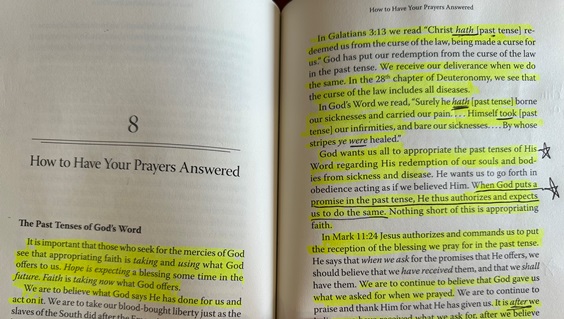I know the title will cause some faithful readers to think, “Now Billy’s gone and done it. He has taken simplicity to an extreme.” Well, maybe I have and maybe I haven’t. I’m writing this post to those of us (I’m included in the “us”) who read a book and then later forget 99% of what we’ve just read. (Are you too part of this “us”?) Please indulge me and give me three minutes and I know that you will later thank me.
The actual reading word by word, sentence by sentence, paragraph by paragraph, page by page, chapter by chapter isn’t really the issue. For me, this was addressed in the first, second, and third grades with the “Hooked on Phoenix” (oops, that should be phonics) teachings by Miss Grothe, Mrs. Grandstaff (Bing Crosby’s mother-in-law), and Mrs. Stokes. Yep, I can read. Later in school, I even took a sped reddin’ fer better compression course. The issue is the retaining of what I read.
Let me share a reading and retaining principle that I share with those participating in my small groups and then I will show the benefit of this way of reading. First, look at these facts.
- Whether it be in a hardback, paperback, or digital format, you bought the book. It’s yours. You own it. It’s yours to do what you want with the book.
- Know that no one will fault or criticize how you read, absorb, and retain the contents of the book.
- As you read, highlight, underline, annotate, and/or circle the keywords and sentences. Without doing this, once read, the thoughts will become lost in a sea of words, sentences, paragraphs, and pages.
And lastly (this may not be for everyone)… - Create a spreadsheet for these impactful sentences. If possible, import the spreadsheet to your iPad or laptop so that it is with you no matter where you go.
Here is an example (benefit) of how I’ve utilized this. A few months ago, I led a small group using F.F. Bosworth’s incredible Christ the Healer. As we read through the book, I made sure that the powerful nuggets wouldn’t be lost after we finished the semester by “personalizing” what I read. Here are just a few of the many amazing insights about divine healing that I now have readily available.
- The Gospel does not leave a man in uncertainty praying with an “if it be Thy will”; it tells him what God’s will is. (page 18)
- God always fulfills His promises when He can get the right cooperation. (page 19)
- If you want to receive life and healing from God, take time to find the words of Scripture that promise these results. (pages 19-20)
- It is impossible to boldly claim, by faith, a blessing that we are not sure God offers. The power of God can be claimed only where the will of God is known. (page 49)
- God is just as faithful to one promise as He is to another. (page 128)
- When God puts a promise in the past tense, He thus authorizes and expects us to do the same. (page 139)
Here is what my spreadsheet looks like.

Simplistic? Well, I guess so. But, in doing so, your reading will be far more beneficial. So, go ahead and thank me. You’re welcome!






I first want to say thank you 🙏🏽 This really helped me to retain and improve my reading skills and application of what I’m reading.
Blessings and Merry Christmas.
Thank you, Fred. Bountiful blessings to you and Mary!!!